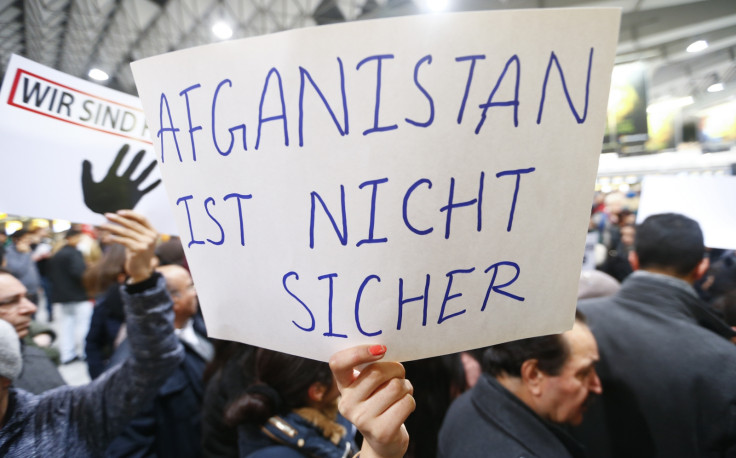Suspect in Berlin terror attack was 'supposed to be deported' months ago
Statement from a German policeman contributes to an ongoing debate about deportations in the country.
The suspect German authorities are looking for in relation to the Berlin terror attack was "supposed to be deported" months ago, but Tunisian authorities failed to send the necessary documentation.
Federal chairman of the police union DPoiG Ernst Walter spoke to German news agency Deutsche Welle about the nationwide manhunt for the Tunisian man whose name appeared in immigration documents found in the truck used to plough through the crowd at a Berlin Christmas market, killing 12 people.
The suspect is being sought in Germany and across Europe's border-free travel zone, Interior Minister Thomas de Maiziere told the press after briefing parliament's domestic affairs committee. "This is a suspect, not necessarily the perpetrator. We are still investigating in all directions," he stressed, quoted by the Associated Press.
German authorities have offered up to €100,000 (£84,000) reward for any information about the suspect, which was named as Anis Amri in a public notice released by the Federal Criminal Police Office (BKA). A European arrest warrant from Germany seen by The Associated Press, indicates the man has at times used up to six different aliases and three different nationalities. The note said the suspect may be "armed and dangerous".
Walter confirmed German media reports saying the man was due to be deported from the country. The deportation could not take place due to a delay on the part of the Tunisian authorities in sending the necessary documents for repatriation.
He said that these bureaucratic hurdles are common. "Criminals cannot be deported" he said, as their own countries "do not want them back".

The issue with deporting migrants whose asylum requests are rejected is high on the agenda for German politicians. In October, Angela Merkel touched on the topic at a conference of the youth wing of her party: "We need a national push to deport those who are rejected. That's indisputable and we're working hard on that at the moment," she said, as reported by Reuters.
In an internal report leaked to German tabloid Bild in June, Maiziere said the federal states' offices dealing with the procedures were poorly staffed and there was insufficient cooperation with countries of origin, whose embassies were not issuing replacement papers for their citizens.
According to the document, the minister also complained about "the organisation and implementation of deportation measures, which makes it easier for those obliged to leave the country to disappear."

Maiziere said in August he wanted to introduce new security measures that would make it easier to deport migrants. Deportations are a difficult subject in Germany due to historical reasons, with members of left-wing parties alarmed at the increasing rate of the practice, which they call "inhumane".
Government figures reported by Deutsche Welle estimated that around 220,000 people in Germany are supposed to be deported. Of these, 168,000 have been granted "toleration" papers, a temporary reprieve from deportation for legal reasons, such as those found in the truck in Berlin.
Last week, on 14 December, Germany deported the first group of Afghan asylum seekers who were repatriated under a recent deal signed between the European Union and Afghanistan. The deal forces Afghanistan to accept an unlimited amount of people denied asylum in the EU and a number of protesters at Frankfurt airport protested the deportations.

Maiziere told reporters in Berlin that about a third of the 34 men sent back to Kabul had been convicted of crimes in Germany, including rape, manslaughter, assault and drug offences. Fifty were originally scheduled to be on the plane, Maiziere said, as quoted by the Associated Press, but in six cases there were last-minute interventions from the courts appealing the decision, and 10 "irritatingly" went into hiding.
© Copyright IBTimes 2025. All rights reserved.






















